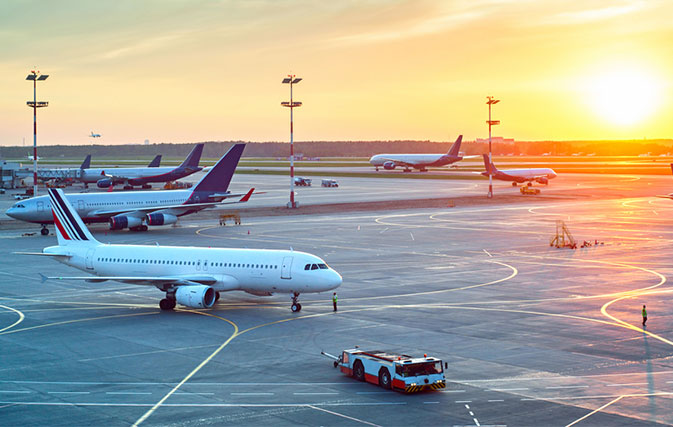GENEVA — IATA is urging governments around the world to find an alternative to quarantine measures, saying that if travellers are told they need to quarantine even once borders reopen, air travel will stay just as stagnant and suffer the same losses as when borders were closed.
IATA’s statement comes as the EU announces proposed guidelines for reopening borders in Europe. While the EU recommends that the 26 countries of the Schengen Zone reopen their borders with minimal checks, the ultimate decision to reopen or not lies with each country. Plus, Europe could remain closed to international visitors until at least mid-June.
Also in recent days, the UK and Spain are among the destinations looking at a 14-day mandatory quarantine for all visitors, even once travel restrictions are lifted.
IATA’s Director General and CEO, Alexandre de Juniac, says governments must find alternatives to maintaining or introducing arrival quarantine measures as part of post-pandemic travel restrictions.
IATA’s April survey of recent air travellers showed that 86% of travellers were somewhat or very concerned about being quarantined while traveling, and 69% of recent travellers would not consider travelling if it involved a 14-day quarantine period.
“Even in the best of circumstances this crisis will cost many jobs and rob the economy of years of aviation-stimulated growth,” says de Juniac. “To protect aviation’s ability to be a catalyst for the economic recovery, we must not make that prognosis worse by making travel impracticable with quarantine measures.”
He adds: “We need a solution for safe travel that addresses two challenges. It must give passengers confidence to travel safely and without undue hassle. And it must give governments confidence that they are protected from importing the virus. Our proposal is for a layering of temporary non-quarantine measures until we have a vaccine, immunity passports or nearly instant COVID-19 testing available at scale.”
IATA’s proposal for a temporary risk-based layered approach to provide governments with the confidence to open their border without quarantining arrivals includes preventing travel by those who are symptomatic with temperature screening and other measures; and addressing the risks of asymptomatic travellers with governments managing a robust system of health declarations and vigorous contact tracing.
IATA FORECASTS
IATA has released new analysis showing that the damage to air travel from COVID-19 extends into the medium-term, with long-haul / international travel being the most severely impacted.
Quarantine measures on arrival would further damage confidence in air travel, and it says a risk-based layered approach of globally harmonized biosecurity measures is critical for the restart.
IATA has a Baseline Scenario, that looks like this:
- Contingent on domestic markets opening in Q3, with a much slower phased opening of international markets. This would limit the air travel recovery, despite most forecasts pointing toward a strong economic rebound late this year and during 2021.
- In 2021 IATA expects global passenger demand (measured in revenue passenger kilometers, RPKs) to be 24% below 2019 levels and 32% lower than IATA’s October 2019 Air Passenger forecast for 2021
- 2019 levels won’t be exceeded until 2023
- Further growth in air travel from the 2020 low point, as international markets open and economies recover. But even by 2025 IATA says it would expect global RPKs to be 10% lower than the previous forecast.
IATA has also released its ‘Pessimistic Scenario’, which looks like this:
- Based on a slower opening of economies and relaxation of travel restrictions, with lockdowns extending into Q3, possibly due to a second wave of the virus. This would further delay the recovery of air travel.
- Global RPKs in 2021 would be 34% lower than 2019 levels and 41% below IATA’s previous forecast for 2021
“Major stimulus from governments combined with liquidity injections by central banks will boost the economic recovery once the pandemic is under control. But rebuilding passenger confidence will take longer. And even then, individual and corporate travelers are likely to carefully manage travel spend and stay closer to home,” said de Juniac.
IATA’s April survey of recent air travelers also found that 58% are somewhat or very likely to restrict their initial travel to domestic journeys.
Domestic Revenue Passenger Kilometers (RPKs) will only recover to 2019 levels by 2022, and international RPKs are only expected to return to 2019 levels in 2024, says IATA.
“The impacts of the crisis on long-haul travel will be much more severe and of a longer duration than what is expected in domestic markets. This makes globally agreed and implemented biosecurity standards for the travel process all the more critical. We have a small window to avoid the consequences of uncoordinated unilateral measures that marked the post-9/11 period. We must act fast,” said de Juniac.

